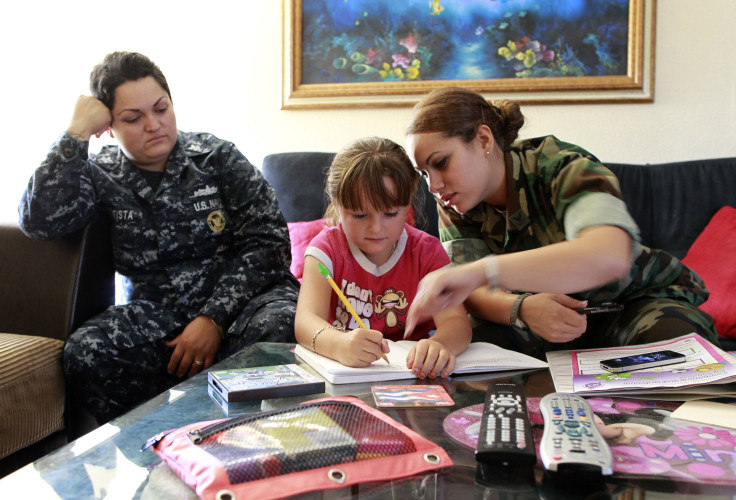US Military Same-Sex Spouses In Germany Offered Legal Protections, Pentagon Confirms

Germany has joined the growing list of countries where same-sex service spouses from the U.S. will receive the same overseas protections as other military dependents. The policy change will enable same-sex spouses to receive longer visas to remain with their partners and special considerations in the German justice system enjoyed by the spouses of other U.S. troops, U.S. Department of Defense officials confirmed Thursday, according to a Military Times report.
While the repeal of the "don't ask, don't tell" legislation four years ago allowed gay and lesbian personnel to serve openly in the U.S. military, it also caused problems for personnel overseas, who in some cases were forced to continue to hide their sexuality and relationships for fear of running afoul of the host country's laws. Countries in the Middle East and Africa, for example, have strict anti-homosexuality laws that in some cases impose death as a penalty.
"A huge burden has been lifted off the shoulders of so many of our military families," said Ashley Broadway-Mack, head of the American Military Partners Association, a group that advocates for married gay troops.
German laws allow homosexuality but had not yet recognized same-sex marriages. The new Pentagon ruling changes that for the 38,000 U.S. troops based in the country.
"With thousands of service members stationed in Germany, this was a serious concern that our families still faced after the successful repeal of 'don't ask, don't tell' and the eventual recognition of same-sex spouses by the Department of Defense," Broadway-Mack said in a statement. "This is incredibly welcome news for so many service members who had to leave their families behind or go to extraordinary lengths to stay together."
The process of gaining legal protections for same-sex spouses has been a tricky one for the Pentagon. Each country that hosts U.S. troops has to be consulted individually about the "status of forces," which is an agreement that governs what laws the military will abide by. U.S. forces are still beholden to the host country's laws.
South Korea, where as many as 30,000 U.S. military personnel are stationed, has yet to change its "status of forces" agreement with the U.S.
Married same-sex couples can serve in the following locations:
Argentina, Australia, Austria, Bahrain, Belgium, Bolivia, Brazil, Burma, Cambodia, Canada, Columbia, Costa Rica, Curacao, Cyprus, Denmark, El Salvador, Fiji, Finland, Georgia, Ireland, Israel, Italy, Japan, Laos, Mexico, Mongolia, Nepal, New Zealand, Norway, Papua New Guinea, Philippines, Portugal, Spain, Sweden, Taiwan, Thailand, Timor-Leste, United Kingdom, Uruguay and Vietnam.
© Copyright IBTimes 2025. All rights reserved.






















